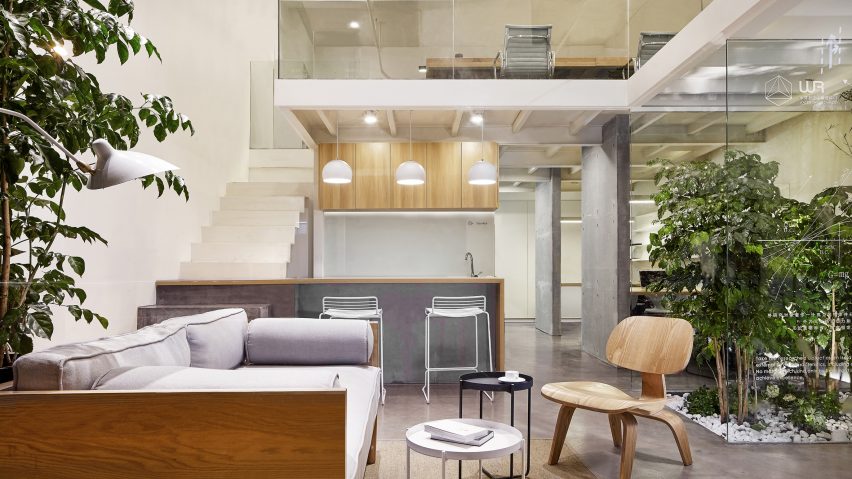To make this workspace feel more cosy, Muxin looked to the decor of homes and combined warm materials with leafy green plants.
When reconfiguring the space, Muxin – a design and research studio based in Shanghai – looked to a book by French philosopher Gaston Bachelard titled The Poetics of Space.
In the book, Bachelard focuses on the personal and emotional response to buildings, and considers how different spatial types can prompt different reactions.
The studio applied the author's musings to their concept, and decided to bring the warm feelings of the home into an office environment in the hope of creating a slower pace for employees.
"Office spaces are especially prone to becoming battlefields of power struggles, a character that – rather than enhancing working experience and efficiency – often results in depressing places overloaded with tension and stress," said the architects.
"Compared with fast office spaces, living spaces are much slower, characterised by the appeal of relaxation, coziness and privacy," they continued. "Why not transplant the elements of the slower residence spaces into faster office spaces?"
Embedded in a dense neighbourhood of commercial buildings, the office is fronted by a giant window. In the entrance area towards the front of the office, rows of bamboo canes line one wall and trees flank the other.
A sofa, coffee table, and bar were all added to give guests the feeling of being at home, while plants on the right-hand-side conceal the ground floor office from the waiting area.
At the back of the office, a meeting room surrounded by transparent glass panels is located next to a set of french doors.
The upper floor is accessed by a set of stairs, which are made up of a combination of concrete, wood, and metal steps.
Upstairs, a narrow corridor is lined with the tops of the bamboos from the ground floor, and provides workers with a place to sit and reflect.
The architects hope that their new configuration will help improve communication between colleagues, and that the office will become a "home sweet home" for all workers.
Boundaries between home and the work place are becoming increasingly blurred. Airbnb regularly bases its office interiors on domestic spaces, including its Tokyo base designed to replicate traditional Japanese interiors, and its Singapore outpost with a reception desk modelled on a front porch.

